Affordable medical program in Malaysia at UCSI University
UCSI University’s Medicine programme recruits and trains students to become
medical doctors to meet the needs of the healthcare system of the country.
This goal is achieved with highly qualified staff, fully-equipped laboratories as well as other essential facilities. With learning as its training thrust, active student participation is the standard expectation.
The homegrown Medical progamme at UCSI University has graduated its first batch of students already and is accredited by MQA, recognised by the Malaysian Medical Council and World Health Organisation.
Problem Based Learning (PBL) was introduced at the Faculty of Medicine & Health Sciences, UCSI University, since the inception of medical programme in 2005.
Many students dream of becoming doctors but are unable to achieve it because of the high cost involved for the medical program. With more than 28 years of experience, UCSI University provides a high quality and affordable medical program at about RM300,000 total for 5 years.
It is cheaper compared to other medical programmes in Malaysia and is value for money because the medical programme at UCSI University is recognised by WHO and accredited by MMC.
Study the Doctor of Medicine Programme at UCSI University
This course is completed locally. Year 1 and 2 is conducted at the state-of-the-art
campus in Cheras, Kuala Lumpur and years three to five at the clinical training at the Sultanah Nur Zahirah Hospital in Kuala Terengganu.
This is advantageous to the UCSI Medical Students because the doctor to medical student ratio is low and the medical student to patient ratio is high for the clinical rotations.
Therefore, medical students get personal attention from the attending doctors to learn a lot as well as put into practice their knowledge and skills to the many patients assigned to them.
Clinical training give students experiences in all parts of the hospital setting, including the operating room, emergency department, and various other departments that allow learning by viewing and doing.
During this training, students are required to rotate through different medical specialties and treat patients under the supervision of physicians. Students elicit patient histories, complete physical examinations, write progress notes, and assist in surgeries and medical procedures.
An overcrowding of housemen has occured at some of the nation’s 39 training hospitals, and senior Hospital Kuala Lumpur
(HKL) consultant physician Datuk Dr S. Jeyaindran said that a houseman would normally look after four patients now — down from 10 five years ago.
“The concern is that these interns are seeing fewer patients and hence, have fewer opportunities to carry out adequate procedures.
“In some hospitals, there are more housemen than patients,” said Dr Jeyaindran, who is also the head of medicine at the Health Ministry.
Being the only university sending medical students for clinical training at the Sultanah Nur Zahirah Hospital, UCSI students get more attention from the attending physicians and access to more patients.
Sultanah Nur Zahirah Hospital is equipped with RM5.7mil worth of multislice computerised tomography equipment.
The neurosurgery unit of Sultanah Nur Zahirah Hospital (HSNZ), which was established in April 2011, has conducted 1,343 brain and spinal cord operations as at December 2013. HSNZ has successfully become the referral centre for various cases of brain and spinal cord injuries previously handled by Universiti Sains Malaysia Hospital in Kubang Kerian.
In the northern region as well as Klang Valley, there are hundreds of medical students from many medical schools vying for
attention at the hospitals there.
At the end of the MD programme, the graduates would have attained the fundamental knowledge, attitude and skills in the following five areas:
- Basic medical services
- Clinical and therapeutic methods, procedures and investigations
- Community health and family medicine
- Communication skills
- Professional competence
Entry Requirements into the Medical Program at UCSI University
- STPM/ALevels - Grade B in Chemistry, Biology & Maths. or Physics (All subjects must pass in one sitting)
- UEC - Grade B3 in Chemistry, Biology & Maths. or Physics (All subjects must pass in one sitting)
- UCSI Foundation in Science - Min. 3B in Chemistry (I & II), Maths (All), Biology (I & II) / Physics. Min CGPA 3.5 and above (All subjects must pass in one sitting.)
- Other Qualifications (SAM / CPU / HSC) - 85% in Chemistry, Biology and Maths/Physics
- Local Matriculation - CGPA 3.5 and above in Chemistry, Biology and Maths/Physics.
Features of the Doctor of Medicine Programme at UCSI University
i. Student-centred Learning
With a student-centred rather than teacher-centred programme, the curriculum is structured to foster and encourage student learning and the fostering of ownership over their own learning as the main objective.
ii. Problem-based Learning (PBL)
The Faculty recognises that the philosophy of using problems is the most effective learning approach suited to medicine, and is used to enhance the learning in Basic Medical Sciences.
The Faculty recognises that the philosophy of using problems is the most effective learning approach suited to medicine, and is used to enhance the learning in Basic Medical Sciences.
iii. Integrated Learning
Both Basic Sciences and Clinical Sciences are integrated throughout the academic training with early clinical exposure in the form of hospital visits to enhance the learning of Basic Sciences and to facilitate student transition to a comprehensive hospital & Community-based learning that enables students to develop their interviewing, communication and physical examination skills. Arranged in Year 2 of the programme, these visits enable students to put their training into practice, as well as to facilitate their transition into the clinical environment in Year 3.
Both Basic Sciences and Clinical Sciences are integrated throughout the academic training with early clinical exposure in the form of hospital visits to enhance the learning of Basic Sciences and to facilitate student transition to a comprehensive hospital & Community-based learning that enables students to develop their interviewing, communication and physical examination skills. Arranged in Year 2 of the programme, these visits enable students to put their training into practice, as well as to facilitate their transition into the clinical environment in Year 3.
iv. Computer-assisted Learning
The learning process is further strengthened with active incorporation of multimedia tools, which include a computerised multi-purpose laboratory and 3D cyber anatomy software for anatomy dissection sessions
The learning process is further strengthened with active incorporation of multimedia tools, which include a computerised multi-purpose laboratory and 3D cyber anatomy software for anatomy dissection sessions
Programme Details Doctor of Medicine Programme at UCSI University
The five-year M.D. programme is segregated into two phases. Phase 1 of the
programme (the first two years) is conducted at the Kuala Lumpur campus while Phase 2 (the final three years) is based at the clinical school at the 58-acre Terengganu campus. The clinical training at the Sultanah Nur Zahirah Hospital in Kuala Terengganu.
Each semester comprises approximately 16 weeks of class sessions whereby the hours of contact for each session ranges between one to two hours per session.
Interview
Academically-qualified candidates are required to attend an interview for admission. The outcome of the interview determines a candidate's successful admission into the programme.
Subjects for the Doctor of Medicine Programme at UCSI University
| Phase 1: (BASIC MEDICAL SCIENCES) at UCSI University Kuala Lumpur Campus | Year 1 | Semester 1
|
| Year 2 | Semester 1
| |
| Phase 2: (CLINICAL-SCIENCES) at UCSI University Terengganu Campus | Year 3 |
|
| Year 4 |
| |
| Year 5 |
|
Assessments for the Doctor of Medicine Programme at UCSI University
There will be three Professional Examinations. The First Professional Examination comprises two parts: the first part to be taken
at the end of the first year and the second part at the end of second year. The student will proceed to the subsequent year on passing this examination.
Students may be allowed to re-sit but will be excluded from the course if they fail the re-sit examination.
Students may also request to repeat the year in lieu of a re-sit examination but he can do so ONLY ONCE for Phase 1.
The Second Professional Examination will be conducted at the end of the fourth year. Progression from the third year to the fourth year and eligibility to sit for the Second Professional Examination is subject to satisfactory completion of all postings.
There is no re-sit examination and students who fail will repeat the year. This will be allowed ONLY ONCE.
The Third Professional Examination will be conducted at the end of the final year. Those who fail may be allowed to take re-sit
the examination after SIX MONTHS and a second re-sit after a further six months should they fail in the first re-sit. Should they fail the two re-sit examinations, they will be precluded.
Notwithstanding the above, students are subject to the rules and ethics of the professions in their daily performance. Repeated non-compliance can result in their being precluded from the course.
Following successful completion of the medical degree, graduates are eligible for provisional registration with the Malaysian Medical Council (MMC).
After serving a compulsory housemanship year, they are eligible for full registration in Malaysia, but Malaysian citizens will be required by the Ministry of Health to undertake a further three years of compulsory service.
The following list is the samples of specialisation and sub-specialisation should the students intend to further their studies.
Specialisation - At least 4 years
- Pathology
- Immunology
- Internal Medicine
- General Surgery
- Obstetrics and Gynaecology
- Orthopaedics
- Paediatrics
- Otorhinolaryngology (ENT)
- Ophthalmology (Eye)
- Radiology
- Anaesthesiology
- Community Medicine
Sub-specialisation - A further 2 to 4 years
- Cardiology
- Gastroenterology
- Plastic Surgery
Recognition of the Doctor of Medicine Programme at UCSI University
The Doctor of Medicine (MD) programme at UCSI University is accredited by the Malaysian Qualifications Agency (MQA) and the Malaysian Medical Council (MMC). The medical programme has international recognition as it is listed by the World Health Organisation (WHO).
EduSpiral Consultant Services- Your Personal Online Education Advisor
Established since 2009, EduSpiral Consultant Services helps provide information and counselling on courses and universities in Malaysia. EduSpiral Consultant Services also represents Northampton University, UK, MDIS Singapore and Hong Kong Polytechnic University.
- EduSpiral Consultant Services represents the best colleges and universities in Malaysia offering a wide range of choices for students to choose from. These colleges and universities offer value for money in the quality of education and excellent facilities that you get.These universities and colleges are chosen by EduSpiral because they represent the best in their fields in Malaysia and affordable. EduSpiral provides in-depth information and counseling on their courses so that students are able to make the right choice.
If you are still not sure what to study, please contact us and we will send you a free EduSpiral Career Assessment Form.
Please contact us for more details.
- Whatsapp: +601111408838
- Wechat/Line: EduSpiral88
- Instagram: www.instagram.com/eduspiral
- Foursquare: www.foursquare.com/eduspiral
- Youtube: www.youtube.com/eduspiral
- Follow EduSpiral: www.twitter.com/eduspiral
- Be my friend: www.facebook.com/eduspiral1
- Like EduSpiral: www.facebook.com/eduspiralcs
- Message me: info@eduspiral.com
- Website: www.eduspiral.com
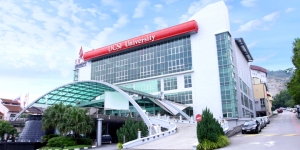
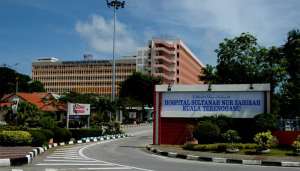

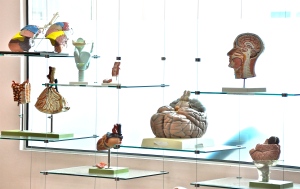
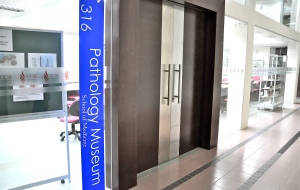

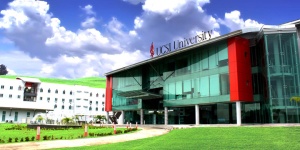
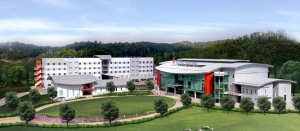
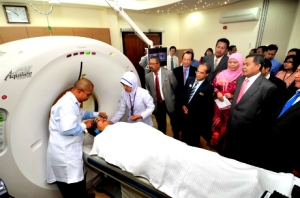
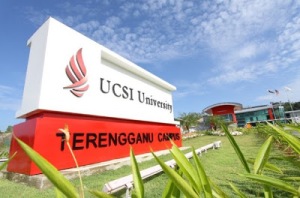
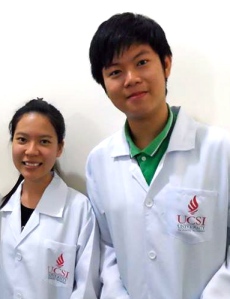
No comments:
Post a Comment
Please leave your comments and questions